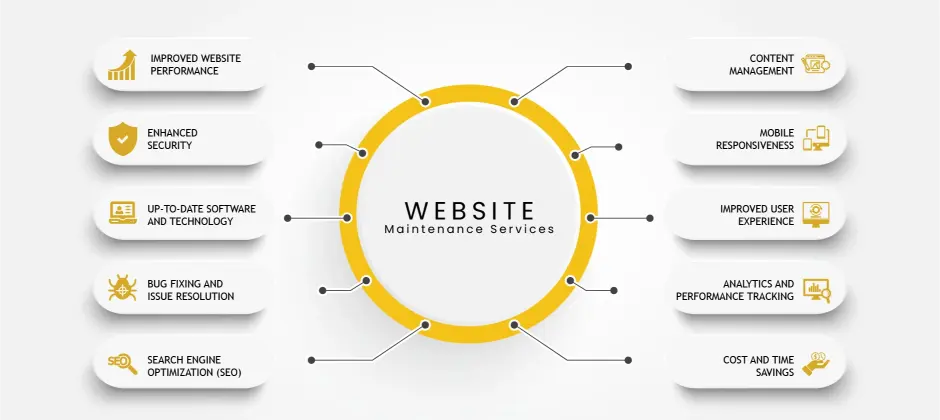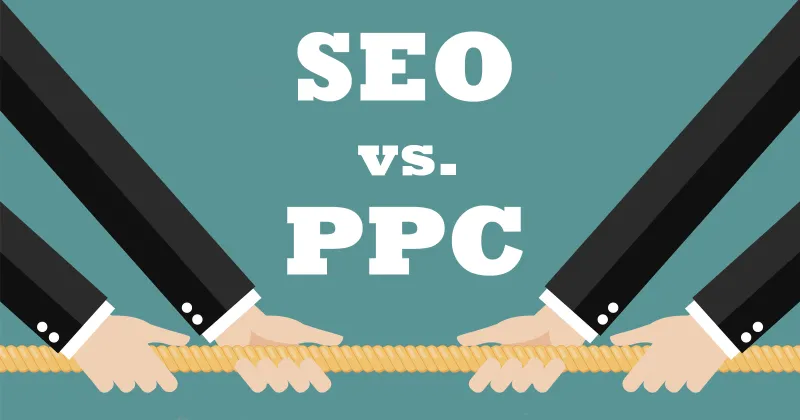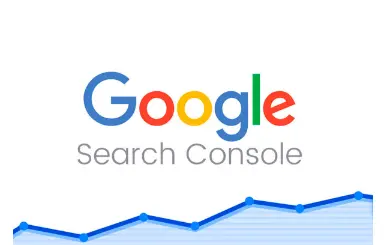Website Management For Small Businesses
Why Some Small Business Owners Are Reluctant to Invest in a building a Website
In today’s digital era, establishing an online presence is crucial for small business success. Yet, some small business owners hesitate to invest in a website or advertising. Understanding their concerns can help address these hesitations and highlight the importance of digital marketing for growth. Here are the main reasons behind their reluctance and how to overcome them.
Fear of High Costs
Many small business owners worry about the financial burden of building and maintaining a website. The perception that websites are expensive deters them from taking the plunge. However, the costs of not having a website can be much higher in terms of lost opportunities and revenue. Affordable options exist, ranging from DIY website builders like Wix or Squarespace to hiring freelancers or small agencies. Additionally, the long-term benefits almost always outweigh the initial investment.
Lack of Technical Knowledge
Another significant barrier to creating a website is the lack of technical expertise. Small business owners can be overwhelmed by the thought of managing a website.
A real functioning website is actually fairly complex. Free web site builders offer a few templates, and you can choose the colors and add some photos, but they rarely look professional unless you happen to have a background in design, additionally, they usually have the website builders name on the free plans, and you have to upgrade to get rid of their watermark, and use your own URL. They also have the most basic hosting plan which can cause your website to slow to a crawl if more than 2 people are using it it at the same time.
By the time you upgrade a web-builder like Wix, to actually function, you will be spending $30-$50 a month on hosting and custom emails etc, and you will be the one doing all of the work. And we have not even got to SEO. I have never seen a Wix website rank high on Google. WordPress, is more complicated, but also more advanced.
Time Constraints
Running a small business is time-consuming, and owners juggle multiple roles. Adding website management to their responsibilities is difficult. The learning curve to build a website that functions takes years. However, investing time in building an online presence can streamline many business processes, such as customer service and marketing. Moreover, outsourcing website management for small businesses to experts can save time and ensure the site is optimized effectively.
Uncertainty About ROI
Some small business owners are skeptical about the return on investment (ROI) from a website or digital advertising. They may have heard of others’ failed attempts and fear wasting resources. Nonetheless, with the right strategy, a website can significantly enhance visibility, attract new customers, and increase sales. Tools like Google Analytics provide insights into website performance, helping business owners understand and improve their ROI. You can easily see your traffic, and what your visitors are clicking on – or not clicking on.
Comfort with Traditional Methods
Many small business owners prefer sticking to traditional marketing methods they are familiar with. They might rely on word-of-mouth, local print ads, or community events. While these methods have their merits, they also have limitations in reach and scalability. Integrating a website and digital advertising can complement traditional efforts and open new avenues for growth.
Misconceptions About Target Audience
There’s a common misconception that certain target audiences do not use the internet frequently. For example, some business owners believe that older customers prefer offline interactions. However, internet usage is widespread across all age groups, and having a website can cater to a broader audience. Effective website management for small business includes understanding and reaching the right audience online.
Overcoming Reluctance
To address these concerns, small business owners need to be educated on the benefits and practicalities of having a website and investing in digital advertising.
While the reluctance to invest in a website is understandable, the benefits far outweigh the perceived drawbacks. Small business owners who embrace hving a digital presence can reach wider audiences, improve customer engagement, and drive growth. By addressing their concerns and providing the necessary support, we can help them unlock the full potential of their businesses in the digital age.
Website Management For Small Businesses

Website Management For Small Businesses
The Three Choices Small Business Owners Have When Creating or Optimizing Their Website: In-House, Freelance, or Outsource
Creating or optimizing a website is a crucial step for small businesses aiming to establish a robust online presence. Small business owners have three main options: handling it in-house, hiring a freelancer, or outsourcing to an agency. Each choice has its benefits and challenges. Here, we explore these options to help you decide which is best for your business needs.
In-House Website Management
Managing your website in-house can provide unparalleled control and flexibility. When you or your employees handle the website, changes can be made quickly, and there’s no need to wait for external parties. Additionally, in-house management allows for a deeper understanding of your business needs and goals.
Pros:
- Control and Flexibility: Immediate updates.
Cons:
- Time-Consuming: Significant investment in time for training and maintenance.
- Resource Intensive: Requires a team with a broad range of skills in web development, design, SEO, and content management.
Freelance Website Developers
Hiring a freelance website developer offers a balance between cost and expertise. Freelancers often bring specialized skills to the table, which can be advantageous for small businesses needing particular functionalities or aesthetic features.
Pros:
- Specialized Skills: Access to specific expertise for unique website needs.
Cons:
- Quality Variability: The quality of work is unknown.
- Communication Challenges: Potential issues with differing schedules and time zones. Most website freelancers are located in India, and will have access to your all of your resources.
Outsourcing to an Agency
Outsourcing your Website Management For Small Businesses to a professional agency is another viable option. Agencies provide a comprehensive range of services, including design, development, SEO, and ongoing support. This holistic approach ensures that all aspects of your website are optimized and maintained by experts in the field.
Pros:
- Comprehensive Services: Agencies offer a full spectrum of services, from SEO, security, hosting, back-ups, custom emails, to user experience, and design.
- Strategic Insights: Access to long-term planning and strategic guidance.
- Cost: Significantly cheaper than hiring a dedicated staff position.
Cons:
- Less Control: You have less direct control over the website’s day-to-day management. (Could also be a Pro)
Making the Right Choice
The decision to manage your website in-house, hire a freelancer, or outsource to an agency depends on your specific needs, resources, and goals. In-house management offers control and flexibility but requires significant expenses, time and expertise. Freelancers provide specialized skills at a potentially lower cost, though quality and security are unknown. Agencies deliver comprehensive services and strategic insights, and are often the best solution for small businesses.
By carefully considering these options, small business owners can make an informed decision that best supports their website management for small business efforts..
Website Management For Small Businesses
5 Signs That Your Business Has Outgrown Your DIY Free Website Plan
As your business evolves, so should your digital presence. While a DIY free website plan might have been sufficient initially, there comes a time when your business’s growth demands more robust solutions. Here are five signs that your business has outgrown its DIY free website plan and needs an upgrade to maintain its competitive edge.
1. Increased Traffic Causes Slow Loading Times
As your business gains popularity, the volume of website traffic increases. Consequently, this surge can lead to slower loading times if your current plan cannot handle the demand. Slow loading times negatively impact user experience and can lead to higher bounce rates. When your website lags, it’s a clear indicator that your business needs a more powerful hosting solution that can efficiently manage higher traffic volumes. Free websites will bog down if there are 2 or 3 users simultaneously.
2. Limited Customization Options
A DIY free website plan often comes with limited customization options. Initially, these constraints might not be an issue. However, as your business grows, so does the need for a unique and tailored online presence. If you find yourself unable to implement specific design changes, add new features, or integrate essential tools, it’s a sign that you need a more flexible and customizable website management plan.
3. Inadequate SEO Capabilities
Search engine optimization (SEO) is crucial for improving your website’s visibility. Free website plans typically offer basic SEO tools, which might not suffice as your business scales. For better search engine rankings, you need advanced SEO capabilities, such as custom meta tags, comprehensive keyword analysis, and detailed performance reports. Upgrading your website management will provide the necessary tools to enhance your SEO strategy and attract more organic traffic.
4. Insufficient E-commerce Functionality
If your business involves selling products or services online, robust e-commerce functionality is essential. Free website plans often limit the number of products you can list and provide basic payment processing options. As your inventory expands and customer base grows, you need advanced e-commerce features like varied payment gateways, inventory management, and customer relationship management (CRM) tools. Upgrading ensures your e-commerce platform can support your business’s growth.
5. Lack of Professional Support
When running a business, time is of the essence. DIY free website don’t include professional support, leaving you to troubleshoot issues independently. As your business grows, technical problems can become more complex and time-consuming. Professional website management for small business includes dedicated support, ensuring quick resolutions and allowing you to focus on your core business activities.
Ensuring your website grows with your business is vital for maintaining a competitive edge and driving success.




















